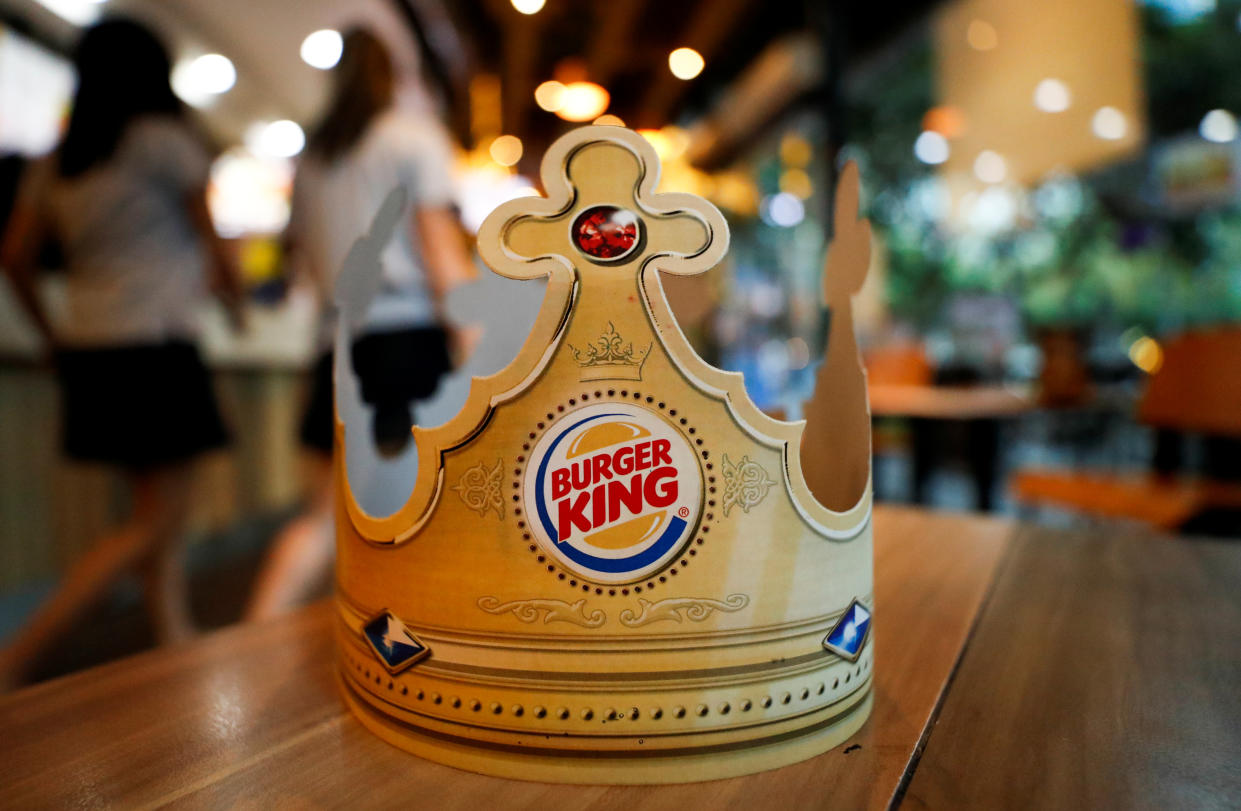Restaurant Brands CEO on portfolio of food chains: 'I love all four of our brands’
Restaurant Brands' (QSR) new 36-year-old CEO Josh Kobza may have a deep résumé in all things finance, but don't expect him to grill up whopper-sized asset sale deals.
Kobza told Yahoo Finance Live it still makes sense to have the company's brands — Burger King, Popeyes, Firehouse Subs, and Tim Hortons — under one umbrella.
"I love all four of our brands," Kobza said. "I would love to own each of them individually. I love being part of all four of them even more. ... I think what's so exciting is that we have these incredible businesses and brands, and it's up to us to make them even more relevant to our customers in more places around the world. And I think that is how we can realize a lot of the value and create a lot of value for shareholders over many years to come."
The results in recent quarters for Restaurant Brands would support Kobza's view.
Tim Hortons' same-store sales popped 13.8% in the first quarter powered by a turnaround plan that has the Canadian-based chain refocused on serving hotter coffee and better-tasting breakfast food. Burger King's sales, meanwhile, rose 10.8% as the company cranked up its 'Reclaim the Flame' plan to revive the Whopper's quality and pull back on promotions for the iconic sandwich.
Bringing up the rear with not-too-shabby gains: Firehouse Subs sales rose 6.1% and Popeyes sales improved 5.6%.

But it's hard not to speculate why Kobza might perhaps split up the portfolio down the line to extract hidden shareholder value.
For one, he worked on all these major acquisitions, having joined the company in 2012. A good chunk of the time included a four-year stint as CFO, during which the company purchased Popeyes (2017) and Firehouse Subs (2021). Tim Hortons was purchased in 2014.
So Kobza knows the brands well and what they could be worth down the line, potentially as stand-alone entities.
Meanwhile, Kobza has extensive financial experience. He joined Burger King in 2012 to lead investor relations not long after the brand relisted on public markets.
From 2008 to 2010, he spent time at private equity powerhouse Blackstone.
And finally, Restaurant Brands shares have only gained 28% in the past five years compared to a 61% rise in the S&P 500. McDonald's shares are up 87% during that stretch. Chipotle stock has sizzled by 389%.
The market may not be giving credit to the conglomerate restaurant model led by Restaurant Brands.
Wall Street generally isn't down on the Restaurant Brands stock, but it is waiting for signs of improved execution — or a hint of a slimmed-down brand portfolio.
"We believe that the systematic clean-up of the franchisee base, with preference for local operators with less than 50 units, will enhance system health," Bernstein restaurant analyst Danilo Gargiulo wrote in a client note. "But under uncertain macro environment, we expect that investors may not look past the relative comp underperformance vs QSR peers. With Popeyes yet to be 'reclaimed', we view the current risk-reward to be fairly balanced."
Brian Sozzi is Yahoo Finance's Executive Editor. Follow Sozzi on Twitter @BrianSozzi and on LinkedIn. Tips on deals, mergers, activist situations or anything else? Email brian.sozzi@yahoofinance.com
Click here for the latest stock market news and in-depth analysis, including events that move stocks
Read the latest financial and business news from Yahoo Finance
